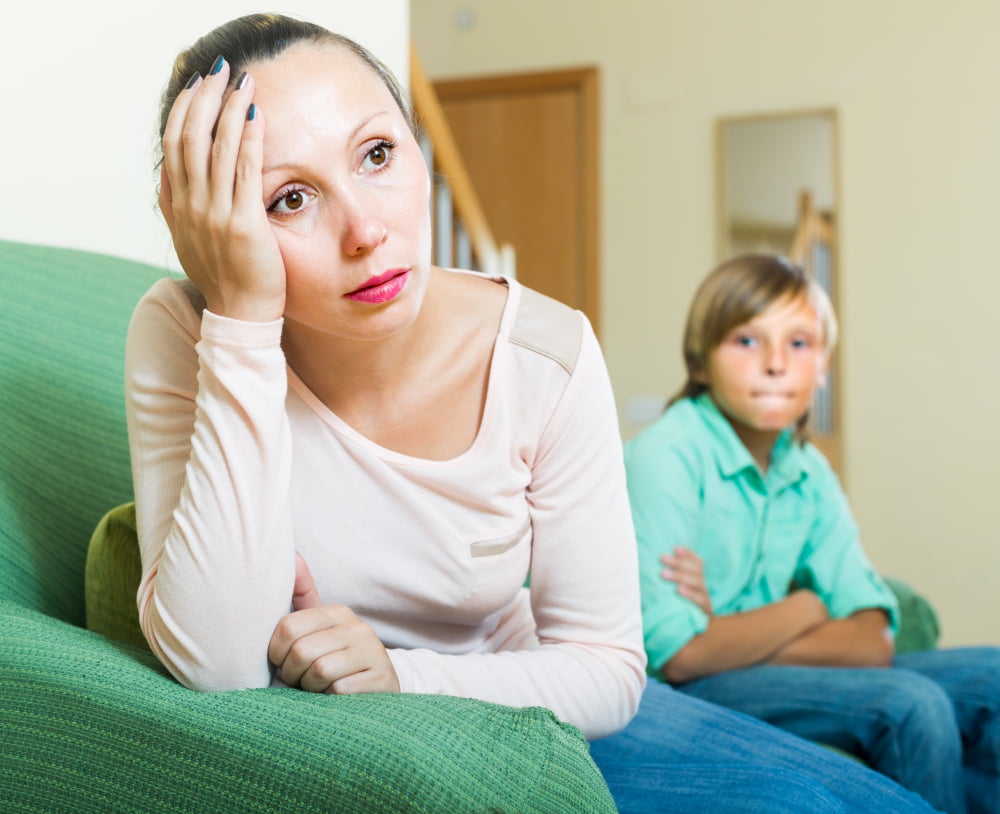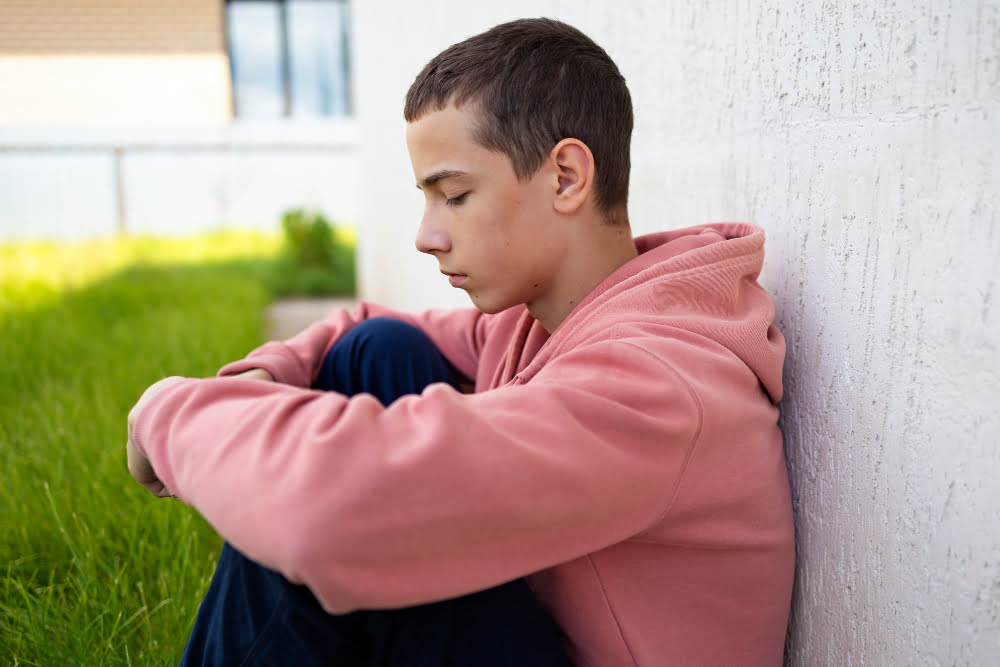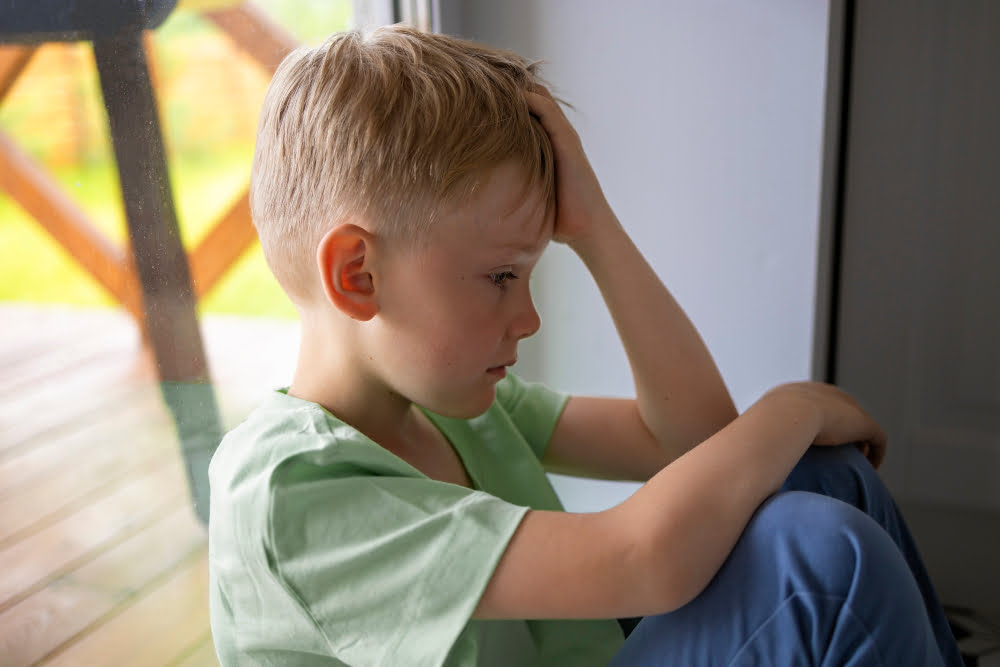Exploring the consequences and downsides, this blog delves into the detrimental effects of what’s considered the worst parenting style.
Parenting is a complex journey filled with numerous styles, strategies, and theories. However, among all these approaches, one method stands out as the least effective and potentially harmful – the neglectful parenting style.
This style, characterized by a lack of responsiveness to a child’s needs, can lead to a myriad of negative outcomes for children, including poor self-esteem, difficulty in relationships, and increased risk of mental health issues.
In this article, we delve deeper into the specifics of neglectful parenting, its impacts, and how to avoid falling into this damaging pattern. By the end, you’ll be equipped with the knowledge to foster a healthier, more nurturing environment for your child.
Key takeaways:
- Permissive parenting style: lack of discipline and structure, behavioral issues.
- Authoritarian parenting style: strict rules, fear-based relationship, low self-confidence.
- Neglectful parenting style: lack of emotional involvement, severe damage to development.
- Permissive parenting can lead to entitlement attitudes and lack of self-discipline.
- Authoritarian parenting can stifle independence and cause rebellion or dependency.
Here You Will Learn:
Understanding Parenting Styles

Different parenting styles can profoundly influence a child’s development, shaping their behavior, values, and self-perception.
Parents typically adhere to one of four key styles.
The authoritative style includes a balanced blend of nurturing and discipline, fostering independence while still enforcing rules.
The permissive style, on the other hand, emphasizes freedom and a lack of discipline, often leading to lack of respect and poor self-control in children.
Conversely, the authoritarian style involves strict adherence to rules, with little room for independence, possibly leading to fear and apprehension in children.
Finally, the uninvolved or neglectful style displays a lack of interest and emotional involvement in a child’s life, which can result in feelings of neglect and low self-esteem.
Recognizing these styles and understanding the potential impact helps parents strive for the most effective approach in raising their children.
The 3 Worst Parenting Styles: How to Be a Bad Parent

Diving right into the first, the permissive style rests on the end of the spectrum where rules and discipline are sparsely enforced, if at all. Here, children run wild with limited oversight or consequences for their actions. More friend than facilitator, permissive parents often struggle to establish healthy boundaries.
Shifting towards the opposite end of the spectrum, one encounters the authoritarian approach. Characterized by rigid rules and high expectations, authoritarian parents run the risk of fostering a fear-based relationship rather than a loving, secure one. They often prioritize obedience over understanding.
Plummeting further into the abyss, we stumble upon the uninvolved, or neglectful parenting style. The most harmful of the trio, this model features a glaring void of emotional involvement and response to a child’s needs. This absence, intentional or not, can inflict severe damage on a child’s psychological and social development.
The Permissive Parenting Style

Permissive parents act more like friends than authoritative figures. No strict rules or expectations are set, allowing children abundant freedom. While this affords kids a high degree of autonomy and self-expression, it poses serious drawbacks.
Children raised in permissive households often struggle with self-regulation and self-control due to a lack of discipline and structure. They may display more behavioral issues, low self-esteem, and poor academic performance stemming from this lack of parental guidance and control. Therefore, while permissive parenting may seem appealing with its lack of limits and ample freedom, it might be doing more harm than good in the long run.
Problems With Over Permissiveness

A major issue stemming from overly permissive parenting is the development of entitled attitudes in children. When parents always give in to their child’s demands without setting boundaries, it fosters a distorted worldview where children expect to get their way unconditionally. This can lead to behavioral problems in various contexts, including school and social situations, as the child fails to understand or accept limits and rules. Behavioural issues often extend into adolescence and adulthood, manifesting as an inability to handle criticism or accept responsibility for their faults or mistakes.
Another problem is the potential lack of self-discipline. Since permissive parents rarely enforce rules or consequences, children lose out on learning how to control their impulses, delaying gratification, and working towards goals – key life skills necessary for personal growth and success. Consequently, they may struggle academically, professionally, and in personal relationships.
Over-indulgence in comforts and freedom, often a characteristic of permissive parenting, also poses a risk for physical health. A lack of boundaries around food and screen time, for instance, can contribute to childhood obesity and its associated health risks. As such, it is important that parents strike a balance, using affection and understanding to guide their children, without ignoring the significance of rules and limits.
The Authoritarian Parenting Approach

Often marked by strict rules, high expectations, and severe punishments, authoritarian parents prioritize obedience and order over warmth and nurturing.
This conformity-enforcing style values the structure and tends to discourage open communication between parents and children; making the child compliant, but at the potential cost of their self-confidence, self-expression and self-worth.
While discipline is important in child rearing, an excessive emphasis can stifle a child’s sense of identity and independence, causing them to either rebel against the parent or become overly dependent, both scenarios reflecting negatively on their mental and emotional development.
The Role of Punishment in Parenting

Punishment, when excessively used or improperly implemented, can encourage feelings of resentment, rebellion, or even fear in children.
Research indicates that punitive measures tend to teach children what not to do, rather than positively reinforcing what they should do.
Furthermore, they perceive their parents as less caring and more controlling, which can obstruct open communication and trust.
Instead, positive reinforcement and setting limits prove to be effective alternatives, promoting a healthier child-parent relationship while teaching good behavior.
The Uninvolved/Neglectful Parenting Style

Rising from a lack of both responsiveness and demands, this method of child-rearing ranks as the most damaging. Parents practicing this style often overlook their obligations – providing not just the basic necessities, but also nurturing the emotional and psychological development of their children. They typically fail to show interest in their child’s experiences and impart minimal guidance, discipline, or active nurturing.
Absence of rules may create the illusion of a freedom-filled environment; however, this lack of structure actually denies children the protective boundaries they crave. Sadly, the low-level of familial engagement often leaves a child feeling uncared for or overlooked. Intriguingly, the lack of supervision and parental control may not necessarily stem from a lack of care or love for the child. Often, external factors such as stress, work, or personal issues may trigger uninvolved behavior. With understanding and effort, parents can transcend these habits and foster a more nurturing environment for their child.
What Is Uninvolved Parenting (Neglectful Parenting)

Neglectful parenting, also known as uninvolved parenting, is characterized by a significant lack of emotional connection and responsiveness towards the child’s needs. Usually, these parents show little to no interest in their child’s daily life, from school activities to emotional well-being.
It’s not always about physical neglect; sometimes, it’s about being emotionally distant, unresponsive, or overly preoccupied with their personal problems. This lack of attachment can stem from stress, mental health issues, or simply an overwhelming life situation.
These parents tend to provide only basic needs like food and shelter, mostly absent on emotional, social, and psychological support.
Characteristics of Uninvolved Parenting Style

Uninvolved parents typically display a lack of interest in their child’s experiences, thoughts, or feelings. Often preoccupied with their own lives – careers, hobbies, or social affairs – they may exhibit overt dis-engagement and may not provide sufficient support in areas including education, developing life skills, or social interaction.
Moreover, these parents often fail to establish and enforce required boundaries, which can result in a lack of guidance for the child—thus leaving the child to navigate the complexities of life alone. This absence of emotional involvement, affectionate communication, and guidance serves as the distinct markers of this parenting approach.
Causes of Uninvolved Parenting

Several factors contribute to the emergence of this detrimental approach to parenting. In some instances, parents may be overwhelmed by their own personal issues such as financial hardship, mental health problems, or substance abuse, resulting in a lack of emotional availability for their children.
Other parents might have never developed healthy parenting behaviors themselves due to their own upbringing or lack of role models. Further, in certain situations, a sense of detachment or indifference can be spurred by unexpected or unwanted parenthood where parents find themselves unprepared or unwilling to take up the responsibility of raising a child.
The crucial point is that these factors do not excuse the neglect but understanding them may aid in addressing the root of the issue, leading to healthier parenting strategies.
Impact of Parental Neglect On Child’s Confidence

Lacking the necessary emotional support, children exposed to neglectful parenting often struggle with self-confidence. Their experiences teach them that their needs are unimportant, translating to how they perceive themselves in relation to others.
Such children may believe they are less deserving or inadequate compared to their peers, leading to self-esteem issues that persist into adulthood. These individuals tend to struggle in social situations, finding it challenging to form and maintain relationships.
Moreover, academic and professional environments can be difficult for them, as they often have a persistent, underlying fear of failure or rejection. It’s essential to note the profound influence a parent’s involvement, or lack thereof, can have on a child’s perception of self-worth.
Ignoring Child’s Emotional Needs

Children’s emotional needs form the foundation of their mental and social well-being. When parents fail to respond to these needs, it can have severe, long-lasting effects. Emotional neglect can lead to children doubting their worth and experiencing difficulty in forming trusting relationships.
They may struggle with identifying and regulating their emotions, possibly leading to mental health issues later in life such as anxiety and depression. Being emotionally available, acknowledging your child’s feelings, and nurturing emotional intelligence help to build a strong, healthy parent-child relationship.
Ignoring emotional needs is not just about lack of affection, but also about lack of attention, support, and understanding. It’s vital for parents to remain mindful of children’s emotions, giving due weight to their feelings, fears, and dreams.
Effects of Overbearing Parenting

Highly controlling or overbearing parents can inadvertently stifle their child’s individual growth and development. Constant supervision and restrictive rules may leave little room for the child to build necessary life skills such as problem-solving, decision-making, and emotional regulation.
Research also reveals that these children may grapple with diminished self-esteem and increased anxiety. The pressure to meet excessive expectations can lead to stress, burnout, and disengagement from valued activities. Moreover, stringent surveillance often backfires, with adolescents resorting to secrecy and deception.
Hence, while maintaining order is essential, an oppressive environment can prove counterproductive, underscoring the need for parental balance.
FAQ
What is bad parenting style?
Bad parenting style refers to situations where a parent consistently places their individual interest over the best interests of their children, making decisions that do not benefit their child.
What is the least common parenting style?
The least common parenting style is permissive.
What is the most demanding parenting style?
The most demanding parenting style is the authoritarian style, characterized by its high levels of demandingness coupled with low levels of responsiveness.
Which parenting style is associated with the most negative child outcomes?
The authoritarian parenting style is linked to the most negative outcomes in children, including aggression, delinquent behaviors, somatic complaints, depersonalization, and anxiety.
How does an authoritarian parenting style affect a child’s development?
An authoritarian parenting style can lead to a child developing low self-esteem, poor social skills, and high levels of depression or anxiety due to strict discipline, lack of warmth and nurturing, and high expectations.
What are the potential negative impacts of permissive parenting style on children’s behavior?
Permissive parenting style often leads to children developing poor self-control and behavioral issues as they grow up due to lack of discipline and boundaries.
Can a neglectful parenting style contribute to juvenile delinquency?
Yes, a neglectful parenting style can contribute to juvenile delinquency, as it often leads to a lack of guidance and supervision, diminishing the chances for children to learn appropriate societal behavior.